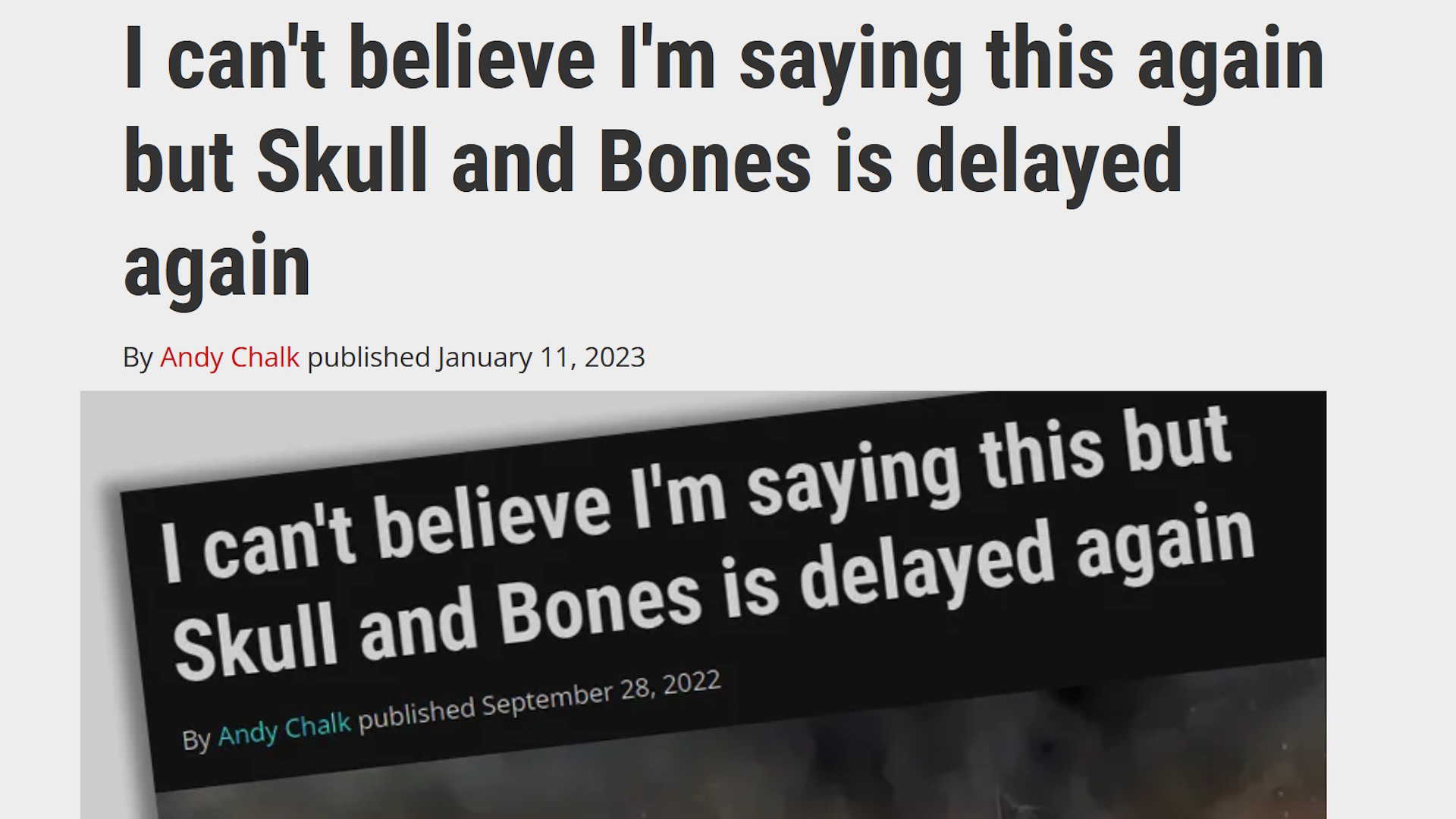
Next month we're going to be inundated with game announcements. The number of trailers you're going to watch—don't pretend you aren't—will make your eyes bleed. And you're going to be given a lot of dates to mark in your calendar. But hold on, because release dates are mostly bollocks.
This is nothing new: since our primitive ancestors first left their caves to visit brick and mortar stores to check out new releases, we've had to deal with the disappointment of highly anticipated games getting delayed. But it feels so much more pronounced these days because there are so many games, so much competition, and incalculable amounts of money being poured into marketing campaigns.

Every developer and publisher is going to have a different approach to announcing a release date. But when you get to the larger publishers, who are largely beholden to shareholders, there are some common trends. And they have very little to do with when a game might realistically be ready for launch.
That's partly because it's all a crapshoot. Even when you ignore all the external factors like pandemics, wars and economic crises—each of which has had a huge impact on videogame development in recent years—there's just no way to predict when a game will be finished. Game-breaking bugs can be introduced at the last minute or player feedback from betas could inspire massive rethinks. Games are complicated beasts with so many moving parts, and sometimes hundreds, or even thousands, of people are involved in their development. You might as well consult a Magic 8 Ball.
You might as well consult a Magic 8 Ball.
So when a release date is announced, it's usually a business decision. Publishers need to be able to show shareholders they have a game on the slate. It helps to placate their ravenous appetite for money. It's not really for us. And when the announcement of a big game releasing in the next year drives up share value, who cares if it's complete nonsense?
But it does affect us in the sense that it's a marketing tactic partially designed to drive preorders and wishlists. A release date makes a game feel more tangible and, if we think we know when it's coming, we're more likely to promise the publisher some cash, which the publisher can then point towards when it needs evidence that the game's going to be a hit. And we've seen that this can happen at any point during a game's development, regardless of when it might reasonably appear.

Take Vampire: The Masquerade – Bloodlines 2. It was announced in 2019, was given a 2020 release date, quickly became available for preorder, was shelved in 2021 and then announced again, with a new developer, in 2023. Even before we had any details about the Chinese Room version, Paradox CEO Fredrick Wester called a 2023 release date "absolutely not impossible". Now it's meant to be launching this autumn, but honestly? That seems incredibly unlikely. If it does appear this year, it'll be five years after it was announced, and four years later than the original release date.
This is not an outlier. Paradox's Life By You was expected to launch in just two weeks, but as of yesterday no longer has a release date. In its three-paragraph update, the publisher offered few details, aside from the fact that additional development time was needed. This is the game's third delay. The implication is that it's not remotely ready for launch, and that we're just finding this out two weeks from the release date, is ridiculous.
But I'm not trying to pick on Paradox here. Sure, things haven't been going particularly well for the publisher or its studios, but this is just par for the course across the entire industry. Cyberpunk 2077 was delayed so many times I can't be arsed to count. So was The Witcher 3. Homeworld 3 was delayed multiple times. Ubisoft's numerous delays of Skull & Bones became a meme. Meanwhile, the Sands of Time remake was delayed a bunch of times, almost seemed like it was cancelled, but is apparently still happening? Star Citizen's Squadron 42 is probably the most infamous example of this. It was initially promoted with 2014 release date. A decade later and we're still waiting.
A game could be in great shape and still be delayed. Last year, Stray Gods was pushed back by a week to avoid clashing with behemoth RPG Baldur's Gate 3, which had been pushed forward to avoid competing with Starfield—which seems sort of hilarious now, given their respective receptions. These decisions get made on the fly because an industry of this size is incredibly hard to predict.

I used to believe that delays were broadly good things: giving a game more time to cook has to be a positive thing, right? But that would only be true if release dates were simple; if games just came out when they're ready. But when does that actually happen? Baldur's Gate 3, for instance, was originally expected out in 2022, but didn't leave early access until 2023. It was incredible. In my Baldur's Gate 3 review, I called it the new pinnacle of the genre. But Larian still spent a long time after launch tweaking it based on feedback and squashing bugs. So even the best RPG I've ever played needed fixes.
Then there are the games that get delayed and still release in an embarrassing state. Even after years of delays, Cyberpunk 2077 was such a mess that it was removed from the PlayStation Store and required years of tinkering (which did, in the end, pay off). No Man's Sky was in a similar situation. So a delay is neither truly positive or negative. It's simply inevitable.
So when you're watching Big Geoff hyping up a game at Summer Game Fest, or even when you're devouring all the reveals from the PC Gaming Show, avoid disappointment and just ignore the release dates. Nobody knows what's going on, and everyone's just flailing around trying to predict the unpredictable.







